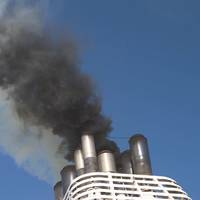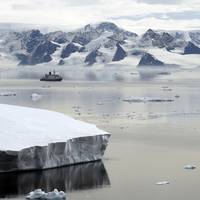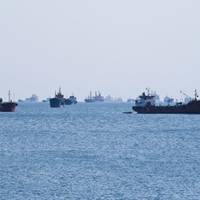Intercargo Asks IMO to Address Challenges of 2020
In addition to progress made on a number of important issues, the International Maritime Organisation (IMO) at its recent Marine Environment Protection Committee (MEPC 73) listened to the concerns raised by the International Association of Dry Cargo Shipowners (Intercargo) and others and offered a constructive way forward to potentially address them.The association of shipowners, managers and operators of dry cargo vessels and represent better this shipping sector said that it is critical, especially for the tramp sector, to ensure an effective implementation process for the 2020 Sulphur Cap regulation."The MEPC agreed to consider at its next sessions…
IMO to Use IBIA’s Best Practice for Suppliers
The first edition of IBIA’s “Best practice guidance for suppliers for assuring the quality of bunkers delivered to ships” was welcomed by the 72nd session of the IMO’s Marine Environment Protection Committee (MEPC 72) last week, where it was agreed that it would be a good basis for the development of IMO guidance. For the past few years, an IMO Correspondence Group on Fuel oil quality (CG) has been working on developing draft guidance on best practice for assuring the quality of fuel oil delivered for use on board ships. The initial aim was to produce a trinity of such guidance documents: one for bunker purchasers/users; one for bunker suppliers; and one for Member States/coastal States.
All Eyes on 2020

The International Maritime Organization’s proposals to reduce sulfur levels in marine fuels to a maximum of 0.5 percent m/m (mass/mass) by 2020 may prove to be controversial, having met with various responses from major shipping organisations and other bodies. The decision to implement the proposals by 2020 was taken by IMO, the regulatory authority for international shipping, during its Marine Environment Protection Committee (MEPC 70) meeting, which was held in London, UK in October 2016, and represents a significant reduction from the 3.5 percent m/m global limit currently in place.
BIMCO Raises Concern on Global Sulphur Cap Implementation
BIMCO raises serious concern over data on available fuel ahead of MEPC decision on global sulphur cap implementation date. BIMCO, the world’s largest international shipping association, has today voiced serious concerns about some of the conclusions of the official study that will inform the decision of the MEPC over the implementation date of the 0.5% global sulphur cap. -On fuel oil quality. A significant amount of the fuel oil that the IMO study concludes will be available for marine use is unsafe to store and use onboard ships. -On how an assessed shortage of sulphur removal capacity in refineries will be resolved so that capacity would be in place by 2020. -The study fails to model the disruption that an overnight introduction of the global cap (from 31 December 2019) would cause.
IMO’s MEPC Set to Adopt Polar Code Provisions

The Marine Environment Protection Committee (MEPC) of the International Maritime Organization (IMO) meets for its 68th session from May 11-15, 2015, at IMO Headquarters in London. Items on the agenda include the proposed adoption of the environmental part of the Polar Code and associated draft MARPOL amendments to make the Code mandatory; the implementation of the Ballast Water Management Convention; further work on air pollution and energy efficiency measures; and a proposal to extend the Great Barrier Reef and Torres Strait Particularly Sensitive Sea Area (PSSA) to parts of the Coral Sea.
MEPC Makes Progress on Energy Efficiency, Emissions

The Marine Environment Protection Committee (MEPC) of the International Maritime Organization (IMO) met for its 67th session from October 13-17, 2014, at IMO Headquarters in London. The MEPC approved the Third IMO GHG Study 2014 providing updated estimates for greenhouse gas emissions from ships. The Third IMO GHG Study 2014 estimates that international shipping emitted 796 million metric tons of carbon dioxide (CO2) in 2012, against 885 million metric tons in 2007. This represented 2.2% of the global emissions of CO2 in 2012, against 2.8% in 2007.
Meeting Quantity And Quality Challenge Remains Priority For Shipping Industry

OW Bunker, one of the world’s leading suppliers and traders of marine fuel oil, highlighted today the impact that mass flow meters can have in solving the ‘quantity issue’ and demonstrated the steps that it is taking to ensure product quality in an event attended by key customers including DFDS, Maersk Oil, Odfjell Tankers, U-Sea Bulk, Grieg Star Shipping and Torvald Klaveness Group. The event, which took place in Copenhagen, invited over 100 customers and industry opinion formers to see a live demonstration…
Holding Your Breath

Ship Tracks South of , a satellite image acquired by NASA on March 4, 2009. On March 4, 2009, the skies over the northeast were streaked with clouds that form around the particles in ship exhaust. This pair of images shows how these ship tracks are different from the natural marine clouds in the same area. The top image is a natural-color (photo-like) view of the ship tracks. The image below reveals more information than a picture: it shows the size of the cloud droplets. Both…
Ship Emissions Tops IMO Agenda
Work on reviewing regulations to reduce emissions of air pollutants from ships was high on the agenda when the IMO Sub-Committee on Bulk Liquids and Gases (BLG) met for its 11th session from 16-20 April 2007. It followed on from an intersessional meeting of the BLG Working Group on Air Pollution, which took place from 13 to 17 November 2006, in Oslo, Norway, to develop the necessary MARPOL amendments. The Working Group on Air Pollution was reconvened during the current session, chaired by Mr. Bryan Wood-Thomas (United States), to progress the work in hand. The Working Group reviewed the proposed three-tier system approach for NOx emission limits applicable to new engines…
President Submits MARPOL Annex VI to Senate for Approval
The White House released the Message from President Bush transmitting to the U.S. Senate the Protocol of 1997 to amend the International Convention for the Prevention of Pollution from Ships (MARPOL Convention). The Protocol of 1997 contains the proposed Annex VI, which would, when it comes into force, establish air pollution standards for large marine diesel engines, regulate the sulfur content of marine diesel fuel, establish standards regarding emission of volatile organic compounds during certain transfer operations, and set standards regarding marine incinerators and fuel oil quality, among other things. Source: HK Law.





